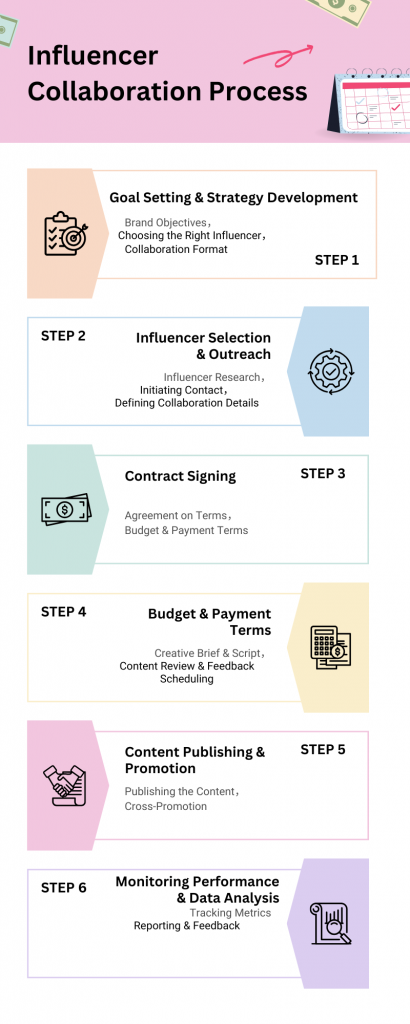From curated personas to the pressures of product endorsements, influencers are walking a tightrope between staying authentic and maximizing earnings.
While sharing their personal lives, micro-influencers also incorporate sponsored content, balancing their personal brand loyalty with commercial objectives. However, the line between genuine recommendations and paid endorsements is challenging to control, as Zhang Junjie noted, “It’s really tough. Some sponsors want the product integrated super naturally into my videos, you know, not a hard sell…… but I also make sure the products I recommend are ones I actually use.”
To maintain “authenticity” in the business space, influencers seek to establish credibility among the audience and business brands, which is a potentially arduous task, as these stakeholders have different expectations regarding their relationship with the business space. When influencers allow the objectives of business brands to drive the content, they perceive this work as inauthentic and unethical, as it challenges the foundation of influencer marketing: the relationship with the audience.
Consistent with the perspectives of Zhang and Choi, our research found that the emotional depth of content can not only attract attention, but also help influencers stand out from their peers by providing a unique emotional perspective. Influencers who share their personal struggles, weaknesses, and moments of low mood allow their followers to glimpse the “real” person behind the influential persona, as Interviewee 1 mentioned, “I try to understand my audience’s feelings, their struggles, their aspirations. I share my own vulnerabilities and experiences, showing that I’m relatable, not just some perfect, unattainable figure.” When influencers present content with genuine emotion, the authenticity of the information conveyed is significantly enhanced.
Furthermore, by combining product features with the influencer’s perceived real-world benefits, the storytelling of emotional narratives can be promoted. As Interviewee 1 stated, “Instead of just telling them to buy something, I encourage them to take positive steps in their lives – whether it’s pursuing a dream, trying something new, or simply being kinder to themselves.” Additionally, Martikainen and Pitkänen’s (2019) research found that when humor is executed effectively, it not only aligns with the influencer’s personality but also can improve engagement and approachability, as followers tend to enjoy and identify with lighthearted content.
However, this raises new ethical considerations. The use of humor by influencers can enhance their likability, as followers may perceive them as more genuine and down-to-earth. Incorporating humor that aligns with their personality and content can strengthen their authenticity, making them appear more human-like rather than a distant media figure. However, the use of humor must be natural and suitable to the content and context; otherwise, it may come across as forced or insincere, potentially diminishing the influencer’s credibility. From the influencer’s perspective, it is important to avoid exploiting the empathy of their followers.

Sharing overly personal information can blur the boundaries between the influencer and the follower, and can turn the influencer’s sharing into a pressure-driven behavior, potentially leading to unhealthy parasocial relationships or even exploitation. When sharing personal experiences, especially those involving health, financial, or other serious issues, influencers should encourage their followers to seek professional help, rather than providing unverified advice. Regarding sensitive topics involving family and friends, it is crucial to respect individual privacy. From the follower’s perspective, one should be cautious of influencers who may be using their followers’ emotions to attract attention or increase sales.
Influencers’ economic prosperity has been accompanied by a proliferation of ethical controversies involving false advertising, privacy issues, and social responsibility. The increasing use of AI tools in content creation, such as AI-generated images and videos, as well as the misuse of deepfakes, has raised concerns about transparency, authenticity, and the potential to mislead audiences. While it is ethically acceptable to make some aesthetic edits to accurately depict one’s lifestyle and experiences, extensive modifications that create unrealistic expectations or distort products are unethical.
Cultivating a carefully curated, unrealistic image of perfection can have negative psychological impacts on audiences. Some influencers have even gone so far as to breach ethical and legal boundaries in pursuit of attention and engagement. As Neil Postman argued in “Amusing Ourselves to Death,” all public discourse has become oriented towards entertainment, becoming a cultural ethos. Politics, religion, news, sports, education, and business have all willingly succumbed to the demands of entertainment. This not only undermines consumers’ interests but also pollutes the overall online environment.
The influencers need to strengthen industry self-discipline and standardization, and the platforms also need to take responsibility by enhancing content review to prevent the spread of harmful content. For the cultural content used in the published content, the influencers need to carefully disclose the inspirational sources of the content and acknowledge the original cultures from which they have drawn elements. This includes using tags, titles, or dedicated sections of their personal profiles to recognize the specific cultures and individuals involved. This transparency allows the audience to understand the background of the influencer’s content and avoid misunderstandings. Seeking advice from cultural experts, ensuring informed consent, and providing recognition to the creators and sources of information are recommended. This collaborative process avoids the commercialization of culture and ensures that the content does not exploit marginalized groups for social or economic benefits.
